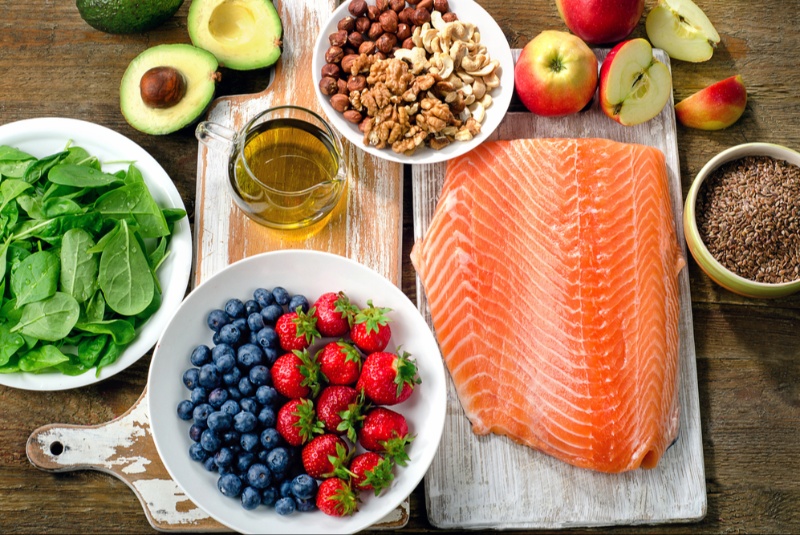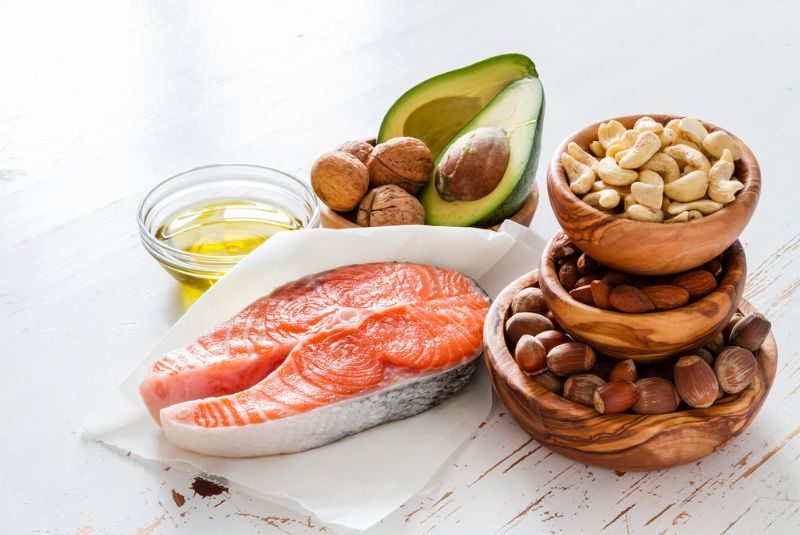Eating for heart health is crucial for maintaining a long and active life. Heart disease remains one of the leading causes of death globally, but many heart-related health issues can be prevented or managed with dietary choices. Foods rich in omega-3 fatty acids, antioxidants, and soluble fiber are particularly beneficial. Incorporating a variety of these heart-healthy foods into your diet can reduce blood pressure, lower cholesterol, and improve overall cardiovascular function. The key is to focus on whole, unprocessed foods that are low in saturated fats and high in nutrients that support heart health.
Oily Fish: A Rich Source of Omega-3 Fatty Acids
Oily fish such as salmon, mackerel, sardines, and trout are excellent for heart health due to their high omega-3 fatty acid content. These fats are essential for reducing inflammation throughout the body, including in the arteries. Regular consumption of omega-3 fatty acids has been shown to decrease the risk of arrhythmias (abnormal heartbeats), which can lead to sudden death. Omega-3 fatty acids also help lower triglyceride levels and slightly raise HDL (good) cholesterol levels. Aim for at least two servings of oily fish per week as part of a heart-healthy diet.
Whole Grains: Soluble Fiber and More
Whole grains like oats, barley, brown rice, and whole wheat help to maintain a healthy heart by reducing LDL (bad) cholesterol and improving blood sugar levels. The soluble fiber found in these foods helps reduce the absorption of cholesterol into your bloodstream, which can prevent the formation of arterial plaques. In addition to fiber, whole grains provide essential nutrients such as iron, magnesium, and selenium, which support heart health. Incorporating a variety of whole grains into your diet can also improve digestive health, which is linked to cardiovascular health.
Nuts and Seeds: Nutrient Powerhouses
Nuts and seeds are rich in heart-healthy fats, protein, and fiber, making them excellent foods for cardiovascular health. Almonds, walnuts, flaxseeds, and chia seeds, in particular, contain high levels of omega-3 fatty acids, which help reduce inflammation and blood pressure. Additionally, nuts and seeds are good sources of vitamin E, which is an antioxidant that helps prevent the development of plaques in your arteries. A small handful of nuts or a tablespoon of seeds daily can contribute to a heart-healthy diet.
Leafy Green Vegetables: Vitamins and Minerals
Leafy green vegetables such as spinach, kale, and Swiss chard are high in vitamins, minerals, and antioxidants that are vital for heart health. These vegetables are rich in vitamin K, which helps protect arteries and promote proper blood clotting. They also have high levels of dietary nitrates, which have been shown to reduce blood pressure, decrease arterial stiffness, and improve the function of cells lining the blood vessels. Incorporating a variety of leafy greens into your diet can boost heart health and provide numerous other health benefits.

Berries: Antioxidant Rich
Berries, including strawberries, blueberries, blackberries, and raspberries, are packed with important nutrients and are high in antioxidants like anthocyanins, which protect against oxidative stress and inflammation that contribute to heart disease. Regular consumption of berries has been linked to reductions in LDL cholesterol, systolic blood pressure, and an integral marker of oxidative stress. Berries are also low in calories and high in fiber, making them a heart-healthy snack or dessert option.
Legumes: Fiber and Protein
Legumes such as beans, lentils, and chickpeas are excellent sources of protein and fiber, which can significantly benefit heart health. The high fiber content helps lower cholesterol and improves blood sugar levels, which reduces the risk of heart disease. Legumes also provide important minerals like magnesium and potassium, which are essential for heart function and blood pressure regulation. Incorporating various legumes into your diet can enhance heart health while providing a plant-based protein source.
Avocados: Healthy Fats
Avocados are a great source of monounsaturated fats, which are heart-healthy fats that have been shown to lower LDL cholesterol levels and reduce the risk of heart disease when used in place of saturated and trans fats. Avocados also provide essential nutrients, including potassium and vitamin E. Their rich fiber content also helps to keep the digestive system running smoothly and reduces blood sugar spikes, which indirectly benefits heart health.
Dark Chocolate: Flavanols for the Heart
Dark chocolate is rich in flavanols, which are antioxidants that help improve heart health by lowering blood pressure and improving blood flow to the heart and brain. It’s important to choose dark chocolate with a high cocoa content (at least 70%) to maximize the benefits and minimize added sugars and fats. Enjoying a small square of dark chocolate regularly can satisfy sweet cravings while contributing to a heart-healthy diet.
Garlic: Natural Blood Pressure Reducer
Garlic has been used for centuries not only for its robust flavor but also for its health benefits. Allicin, a compound in garlic, has been shown to lower blood pressure and cholesterol levels, which can help prevent heart disease and stroke. Incorporating fresh garlic into your meals can enhance flavor while providing significant health benefits. For those who don’t enjoy the taste of garlic, supplements are available but be sure to consult with a healthcare provider before starting any new supplement regimen.
By incorporating these foods into your daily diet, you can improve your heart health significantly. A balanced diet rich in these nutrients, combined with regular physical activity and healthy lifestyle choices, can help reduce the risk of heart disease and enhance overall health. Remember, it's important to make gradual changes and consult with healthcare professionals to tailor dietary choices to your individual health needs.




